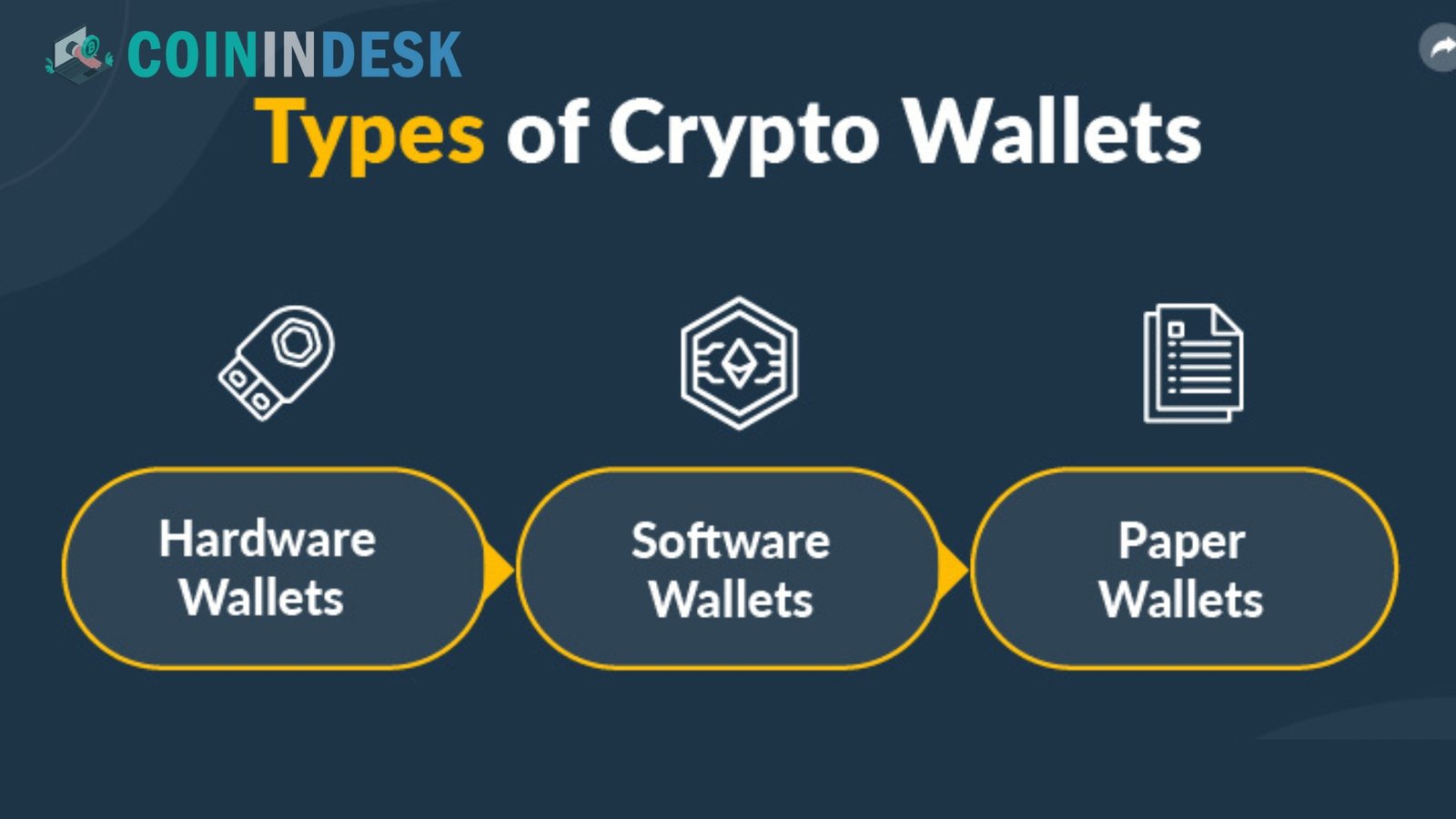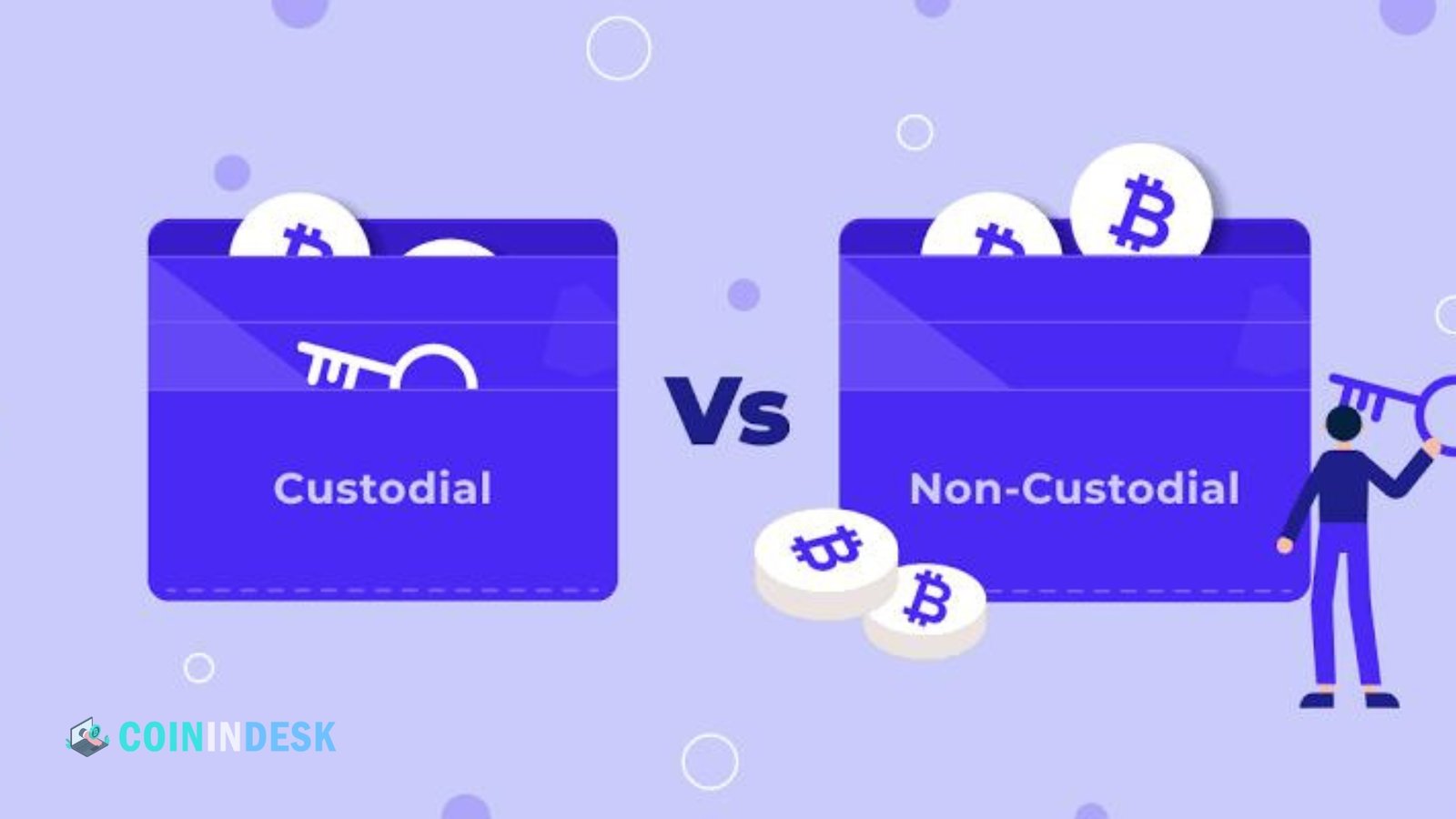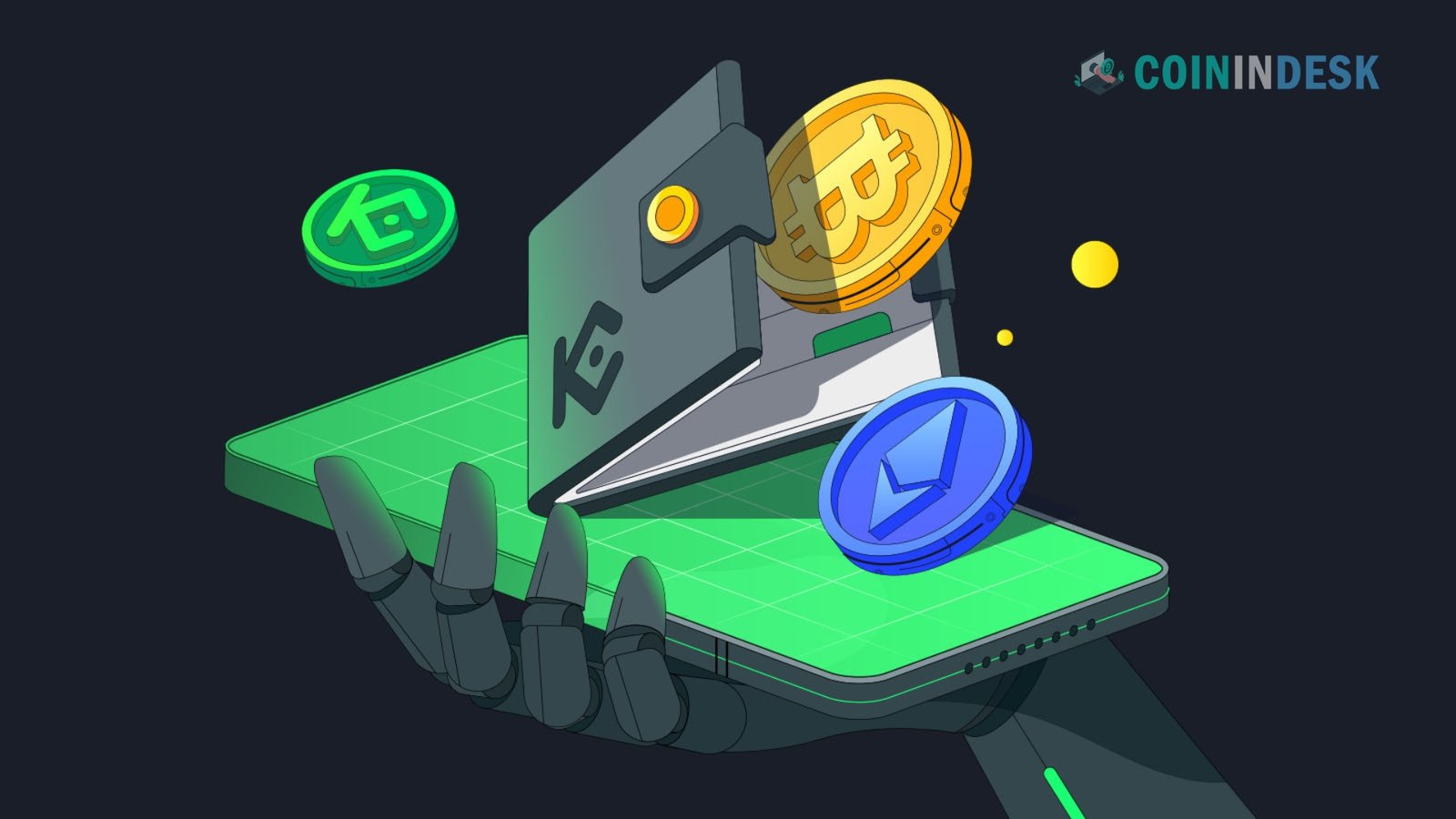The 10 Safest Crypto Wallets of 2024: Best Hardware and Software Options
The need for safe and effective methods of digital asset management is being further highlighted as the bitcoin market undergoes further evolution in 2024. With so many alternatives, crypto investors must know which wallets are the safest. To keep your cryptocurrency safe, this article investigates the top hardware and software wallets on the market.
Introduction to Crypto Wallets in 2024

Picking the correct cryptocurrency wallet is crucial in 2024. There is a wide range of solutions for cryptocurrency users, from convenient hot wallets to more secure cold wallets, as the popularity of cryptocurrencies continues to grow. There are many different kinds of Bitcoin wallets, and each one is important for other people’s storage and management needs.
Understanding the Importance of Crypto Wallets
A crypto wallet is a must-have tool to purchase or store Bitcoin and other cryptocurrencies safely. Selecting a secure cryptocurrency wallet is of the utmost importance because it houses the keys that unlock your digital assets. Knowing how wallets function is critical for safeguarding investments in light of the increasing cyber threats.
Overview of Bitcoin and Crypto Security
As the bitcoin market develops, users’ primary concern in 2024 is security. The primary cryptocurrency, Bitcoin, necessitates stringent security measures to prevent fraud and theft. Whatever you do with your cryptocurrency—hot trading on an exchange or putting it in cold storage—using a top-notch Bitcoin wallet or software wallet will keep it safe.
Criteria for the Safest Crypto Wallets
There are several factors to consider while ranking the most secure cryptocurrency wallets. Important considerations include security, user agency over private keys, and interoperability with other cryptocurrencies. When deciding which wallets are the best in 2024, community reviews, the providers’ reputations, and the wallets’ compatibility with other digital assets are all factors.
Types of Crypto Wallets
If you want to choose the right cryptocurrency wallet for your purposes, you need to know what kinds are out there. There are a variety of wallets available for cryptocurrency, each with its own set of pros and cons that appeal to different users. Different cryptocurrency wallets have other functions, such as hot wallets that prioritize accessibility and cold wallets that offer the highest level of security.
Hot Wallets: Convenience vs. Security
Connected to the internet, “hot wallets” give users instant access to their cryptocurrency holdings, making them perfect for heavy traders. Nevertheless, there are security dangers associated with this convenience. Users must be cautious of possible cyber dangers, even though hot wallets such as Trust Wallet and Coinbase Wallet are great for daily transactions.
Cold Wallets: Best for Long-Term Storage
When deciding how to keep Bitcoin for the long haul, a cold wallet—a secure means to keep Bitcoin away from the internet—is your best bet. You can use hardware or paper wallets to protect your cryptocurrency from internet dangers. In 2024, a cold wallet is a wise choice for cryptocurrency investors who want to keep their holdings.
Hardware Wallets: The Best Bitcoin Wallets
When it comes to Bitcoin, there are a lot of options, but the ideal one is a hardware wallet. These devices keep private keys offline, offering top-tier security measures. The Exodus wallet and other top-tier hardware wallets give cryptocurrency holders a safe and easy way to keep their coins.
Best Hardware Wallets for 2024
Even in 2024, the top hardware wallets are still the most popular way to store cryptocurrency. If you’re a crypto investor seeking a secure place to keep your Bitcoin and other cryptocurrencies, these wallets are your best bet. Due to their offline storing capabilities and hack-proof defenses, hardware wallets are a must-have for crypto asset security-conscious individuals.
Top Features of Hardware Wallets
Several great features improve the security and usefulness of the finest hardware wallets. You may rest certain that your Bitcoin wallet is less susceptible to online threats thanks to essential qualities, including offline storage of private keys. Users also have the option to safely store a variety of digital assets since many hardware wallets handle numerous cryptocurrencies. Advanced security measures like biometric access and two-factor authentication protect your cryptocurrency assets even more.
Comparative Analysis of Popular Hardware Wallets
Trezor and Ledger hardware wallets separate from the competition thanks to their intuitive designs and strong security features. The Exodus wallet is well-liked by crypto fans due to its user-friendliness and attractive design. When deciding which Bitcoin wallet is ideal for your investing strategy, weighing each option’s benefits and drawbacks and choosing which features are most important to you as a crypto user is important.
How to Choose the Best Hardware Wallet
There are several things to think about while choosing a hardware wallet. Before purchasing a wallet, users should check its compatibility with various cryptocurrencies to ensure it can hold all their digital assets. Wallet providers’ reputations and customer reviews might also highlight security concerns. Finally, while choosing a wallet to store your cryptocurrency, it’s important to know how easy it is to use in terms of setup and recovery.
Best Software Wallets for 2024
In 2024, software wallets continue to provide customers with a convenient way to manage their crypto holdings, complementing hardware wallets. The convenience and reasonable security of web-based or mobile-based software wallets make them ideal for everyday transactions. Anyone planning to purchase Bitcoin or engage in cryptocurrency exchange trading must know software wallets’ main functions and advantages.
Key Features of Software Wallets
Software wallets are attractive to users because of several important characteristics. With these wallets, you can access your cryptocurrency assets from any location, as they typically include a smartphone app. Not only that, but many software wallets support cryptocurrencies and have intuitive user interfaces, making them useful for crypto newbies and pros. When choosing a software wallet to store and transact your Bitcoin, it is essential to balance ease of use and security.
Top Software Wallets: Pros and Cons
There are benefits and drawbacks to using popular software wallets like Trust Wallet and Coinbase Wallet. Accessing cryptocurrency is a breeze with electronic wallets, which are usually free. However, they’re more vulnerable to online attacks than hardware wallets. Users should consider the pros and cons of using a software wallet before committing to the practice, particularly when dealing with large sums of cryptocurrency.
How a Software Wallet Works
By encrypting your private keys and keeping them on a device, a software wallet makes it easy to access and manage your cryptocurrency holdings. While internet connectivity makes these wallets more convenient for instant transactions, it also makes them more vulnerable to security breaches. Cryptocurrency users must understand how a software wallet works to safeguard their digital assets and keep them safe from any dangers.
Custodial vs. Non-Custodial Wallets
Understanding Custodial Wallets
When you use a custodial wallet, a third party manages it and stores your private keys and, by extension, your cryptocurrency assets. Purchasing cryptocurrency and keeping track of exchanges can be made easier with this wallet, particularly for newcomers. Users must thoroughly assess the provider’s credibility and security protocols because depending on a third party brings dangers like possible hacking or service interruptions.
Benefits of Non-Custodial Wallets
Users are given complete control over their private keys and, in the end, their cryptocurrency assets when they use non-custodial wallets. Being independent of third-party sources greatly improves security. Furthermore, crypto aficionados may rest easy knowing that non-custodial wallets, such as hardware and some software wallets, are the safest long-term option for storing Bitcoin and other cryptocurrencies.
Choosing the Right Type of Wallet for Your Needs
The amount of protection you desire and how often you trade are two factors to consider when choosing a wallet. Hot wallets, such as the ones offered by Coinbase or Trust Wallet, may be adequate for day-to-day transactions. Conversely, if you plan to invest over the long haul, you should put your crypto assets in a hardware wallet or the best cold wallet you can find.
Best Practices for Storing Bitcoin and Crypto
Importance of Cold Storage for Long-Term Investment
Cold storage is essential for anyone planning to invest in Bitcoin and other cryptocurrencies for the long haul. Cold wallets greatly lessen the likelihood of theft or hacking by storing your cryptocurrency offline. Cold storage with hardware or paper wallets gives customers peace of mind and keeps cryptocurrency safe from online threats.
Tips for Securing Your Crypto Wallet
Multiple measures should be taken to ensure the safety of your cryptocurrency wallet. Strong passwords and two-factor authentication should be enabled for hardware wallets. Keep your mobile app up-to-date and only install updates from trusted sources if you’re using a software wallet. Another important safety measure is regularly backing up your wallet if you ever lose your mobile.
Regularly Updating Security Measures
It would be best to update your cryptocurrency holdings on the newest security procedures to protect your erythema from newly found vulnerabilities and update your software wallet and hardware wallet firmware often. You may strengthen your defenses against any dangers in the ever-changing cryptocurrency ecosystem by reviewing your wallet’s security features and changing passwords.
Conclusion: Finding the Safest Crypto Wallet for You
Summarizing the Best Options of 2024
Because each type of wallet has advantages, we have included custodial and non-custodial solutions in our 2024 best wallets list. Hot wallets, like the Trust Wallet, are great for people who value convenience above all else. Still, long-term investors should look at cold or the best hardware wallets to keep their Bitcoin and other cryptocurrencies safe.
Future Trends in Crypto Wallet Security
Improvements in technology that better safeguard users are on the horizon for crypto wallet security. Innovations like decentralized wallet solutions and biometric authentication are anticipated to become more popular. These changes will probably affect how people keep their Bitcoin and use their crypto assets as the cryptocurrency ecosystem develops.
Further Read: The Top 11 Crypto News Sites to Watch in 2024
Final Crypto Storage Advice
A careful evaluation of your investment approach and risk tolerance is necessary to choose the optimal method of safeguarding your cryptocurrency holdings. It is critical to emphasize security by following best practices regardless of whether you use a custodial or non-custodial wallet. Your money and bitcoin will be safest when you back them up often, use cold storage, and keep your software up to date.


